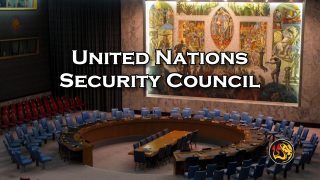
by Emmitt Barry, with reporting from Worthy News Jerusalem Bureau Staff
UNITED NATIONS (Worthy News) – The United Nations Security Council on Friday voted to reimpose sweeping economic sanctions on Iran over its resurgent nuclear program, after strong pressure from European powers. The move immediately drew sharp condemnation from Tehran, which rejected the legitimacy of the decision.
Britain, France, and Germany–signatories to the 2015 Joint Comprehensive Plan of Action (JCPOA)–argued that Iran has repeatedly breached its commitments under the deal meant to prevent Tehran from developing nuclear weapons.
“We urge Iran to act now,” said Britain’s ambassador to the UN, Barbara Woodward, who cast a vote against extending a suspension of sanctions but noted that diplomacy remained possible at the upcoming UN General Assembly in New York.
Iran’s envoy Amir Saeid Iravani blasted the decision as the “politics of coercion,” declaring, “Today’s action is hasty, unnecessary and unlawful. Iran recognizes no obligation to implement it.”
Foreign Minister Abbas Araghchi said earlier Friday that Tehran had put forward a “fair and balanced” proposal to European powers to avoid sanctions, but insisted the West ignored Iran’s overtures.
Europe Pushes Snapback
In mid-August, the “European Three” accused Iran of amassing uranium stocks more than 40 times above the permitted levels and failing to cooperate with nuclear inspectors. French President Emmanuel Macron said sanctions would likely be reinstated by the end of the month, though his UN envoy stressed that a negotiated settlement was still possible.
The Security Council’s decision triggers the JCPOA’s “snapback mechanism,” reinstating pre-2015 sanctions that include an arms embargo, restrictions on ballistic missile development, travel bans, and asset freezes.
Israel welcomed the Security Council’s decision, with Foreign Minister Gideon Saar stressing on X that “the international community’s goal must remain unchanged: to prevent Iran from ever acquiring nuclear capabilities.” Yet the resolution drew opposition from Algeria, China, Pakistan, and Russia, highlighting deep divisions within the council.
The vote comes on the heels of a bloody 12-day war between Israel and Iran earlier this summer, which not only derailed Tehran’s nuclear talks with Washington but also led Iran to halt its cooperation with the International Atomic Energy Agency.
That conflict saw Israel carry out unprecedented strikes on Iranian nuclear facilities, a campaign that ultimately pushed Tehran to withdraw a resolution at the IAEA that sought to ban attacks on such sites.
Iran has warned it may withdraw entirely from the Nuclear Non-Proliferation Treaty if the snapback sanctions proceed, raising fears of a dangerous new escalation.
Despite Friday’s vote, diplomats suggested there may still be a narrow window for compromise in New York next week–though both sides appear entrenched in their positions.
Copyright 1999-2026 Worthy News. This article was originally published on Worthy News and was reproduced with permission.
Latest News from Worthy News
A Christian pastor detained in Nicaragua since July 2025 has been released from prison but placed under house arrest along with five other Christian believers, Worthy News established on Thursday.
An injured Christian pastor in eastern India says recalling Bible verses gave him strength to survive hours of brutal abuse by a Hindu mob that accused him of converting Hindus to Christianity.
U.S. forces carried out five sets of precision strikes against Islamic State targets across Syria between Jan. 27 and Feb. 2, the U.S. military’s U.S. Central Command announced Wednesday.
U.S. forces carried out five sets of precision strikes against Islamic State targets across Syria between Jan. 27 and Feb. 2, the U.S. military’s U.S. Central Command announced Wednesday.
U.S. Special Envoy Steve Witkoff announced on Feb. 5 that Ukraine and Russia have agreed to exchange 314 prisoners, marking the first such swap in five months and the most tangible outcome yet from U.S.-brokered talks held in Abu Dhabi. The exchange followed multiple days of trilateral negotiations involving delegations from Washington, Kyiv, and Moscow.
The Supreme Court of the United States on Wednesday declined to take up a legal challenge to California’s newly drawn congressional map, allowing the state to proceed with district lines that effectively eliminate five Republican-held U.S. House seats.
President Donald Trump said Thursday that Iran has entered negotiations with the United States because it fears potential military action, as both sides prepare for high-stakes talks expected to take place in Oman. Speaking at the National Prayer Breakfast in Washington, Trump said Tehran “doesn’t want us to hit them,” adding that a U.S. naval fleet is in the region as pressure increases.






